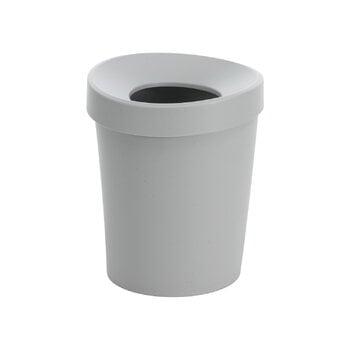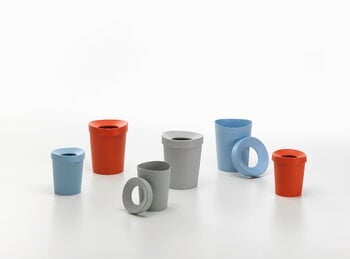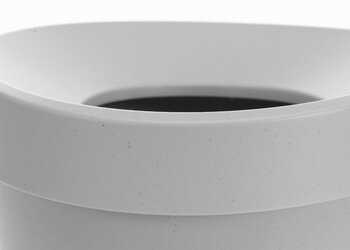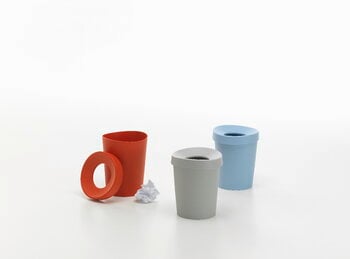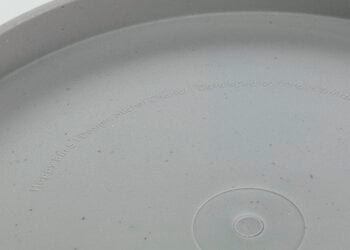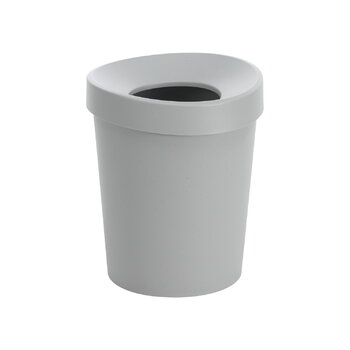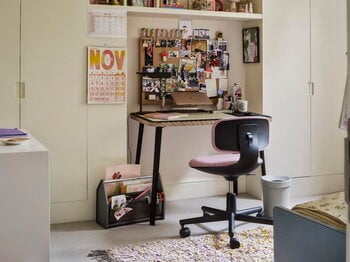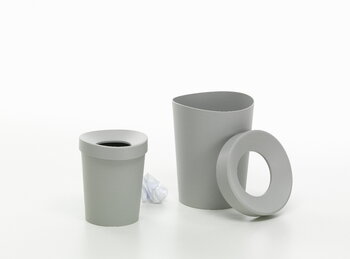Vitra's Happy Bin RE is designed by Michel Charlot. Inspired by cartoons and sculptures, the bin brings a delightful playfulness to a busy business environment. The Happy Bin's asymmetrical shape makes it ideal not only for the office but also for the bathroom, kitchen or bedroom. The bin has a convenient lid with a hole in the middle.
The stylish Happy Bin RE is made entirely of recycled plastic. The eco-friendly material derives from post-consumer recycled plastic, namely plastic packaging from household waste. At the end of its lifecycle, the paper bin is also 100% recyclable.

